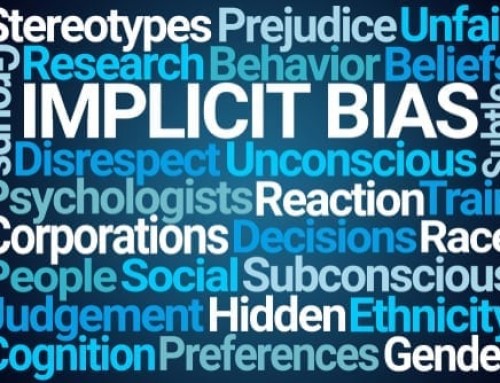As experienced labor lawyers in South Carolina, our team of attorneys frequently fields questions about issues related to sexual harassment, sexual discrimination, and other allegations of inappropriate sexual conduct inside and outside the workplace. Since the allegations against Hollywood heavyweight Harvey Weinstein broke on October 5 in the New York Times, celebrities spanning the news, entertainment, and political industries have faced allegations of inappropriate sexual conduct in and outside the workplace. This article will outline the law in South Carolina as it pertains to sexual misconduct that could affect employment opportunities and employer liability.
Types of Sexual Misconduct Claims in South Carolina
Sexual misconduct occurs in all types of settings. Sexual misconduct can span from verbal advances to rape. Not every instance of inappropriate sexual conduct will necessarily affect employment, but sexual harassment is illegal in housing, education and employment settings.
Sex-Based Discrimination
According to the Equal Employment Opportunities Commission (EEOC), the federal organization that is responsible for enforcing federal laws that make it illegal to discriminate against a job applicant or employee, sex discrimination involves treating an employee or applicant unfavorably because of that person’s sex. Sex discrimination also applies to unfavorable treatment due to a person’s sexual orientation, gender identity and transgender status (see our article on this topic for more details).
Sexual Harassment
According to the South Carolina Human Affairs Commission (SCHAC), created by the SC General Assembly to encourage fair treatment, eliminate unlawful discrimination, and promote understanding and respect among SC citizens, sexual harassment includes unwelcome sexual advances, requests for sexual favors, and other verbal or physical harassment of a sexual nature in a work setting. Illegal conduct also includes making offensive comments about a person’s gender. There is no requirement that the harasser or victim be male or female or be opposite sexes. While teasing, offhand comments or isolated, non-serious incidents may not be prohibited by South Carolina law, harassment is illegal when its frequency or severity creates an offensive or hostile work environment or if it results in an adverse action being taken against the employee being harassed (termination or demotion). Sexual harassment can be perpetrated by a coworker (peer), the employee’s supervisor or a supervisor in another area. The victim does not have to be the person harassed but can be anyone who is affected by the offensive conduct. Sexual harassment can also be perpetrated by someone who is not an employee, such as a customer or client. Sexual harassment is a form of sex discrimination.
Sexual Assault and Criminal Sexual Conduct
Sexual assault and criminal sexual conduct are crimes punishable by jail time and fines. Sexual assault is a state crime categorized under assault and battery charges which describe situations where one person unlawfully injures or attempts to injure another person. It becomes sexual assault when there is a sexual nature to the behavior. Criminal sexual conduct, also known as rape, requires penetration.
Could my Business be Liable for Sexual Misconduct of an Employee?
Most employers with at least 15 employees are covered by the EEOC rules against sex discrimination. Labor unions and employment agencies are also covered under the EEOC rules. Employers with at least 15 employees for each working day in each of 20 or more calendar weeks in the current or preceding calendar year are subject to the SC Human Affairs Law, which contains SC’s anti-discrimination laws. These employers cannot discriminate against an employee based on sex, gender identity, sexual orientation or transgender status when it comes to hiring, firing, promoting, training, wages, or benefits.
Sexual harassment qualifies as a workplace injury if it creates an intolerable work environment. There are two types of sexual harassment in the workplace: quid pro quo and hostile work environment. Quid pro quo harassment is when a worker, typically someone in a position of power, makes sexual advances where it is implied that the employee will receive benefits if they acquiesce to the advance. A hostile work environment is created by any sexual innuendo that does not imply an employee must perform sexual favors.
Sexual harassment must be reported by the employee to a supervisor or human resources department to give an opportunity to resolve the problem. If the problem remains unresolved, the employee has 180 days to file a complaint with the SC Human Affairs Commission or the EEOC. Under no circumstances may an employee wait more than 300 days to file a complaint with SCHAC or the EEOC, and a complaint must be filed with one or both of these organizations before the employee can sue the employer for sexual harassment.
Liability for an employee’s sexual harassment can exist even when harassment comes from a third party. For example, take the scenario of a route driver who stocks vending machines on the client’s premises. The route driver was regularly harassed by the client’s employees. The route driver reports these incidents of harassment to his employer. If the route driver’s employer fails to take any action to correct the harassment, the route driver’s employer could be liable for the harassment endured by the route driver.
Generally speaking, an employee who displays sexual misconduct outside the workplace and unrelated to work (not a client or customer of the employer) will not open the employer to liability for the employee’s conduct. However, many companies are concerned about reputation management and the message company sends to the public when it continues to employ staff who make questionable moral choices.
How Does Sexual Misconduct Outside the Workplace Affect Employment?
In recent news stories, allegations of sexual misconduct on and off the job have been reported and have resulted in consequences for many. The misconduct reported has included simulated unwelcomed touching, unwelcome requests for sexual favors, unwelcome sexual advances, unwelcome touching, and rape. Not all of the allegations have occurred in an employment setting, and yet employers have discharged employees for the misconduct. Even if the act does not occur in the workplace, the employer may discharge an employee due to his or her sexual misconduct if company policies are clear.
South Carolina is an at-will employment state. Unlike news anchor Matt Lauer, who was working under a contract, most employees in South Carolina do not have employment contracts. However, many companies have a code of conduct in their employee handbook or policies. Violation of this code of conduct, be it for sexual misconduct, illegal activity, or other frowned upon actions that occur outside of the workplace, may subject an employee to discipline at work up to and including termination.
How Can You Prevent Sexual Misconduct from Affecting Your Business?
Now that you are armed with knowledge about different types of sexual misconduct, you must work to ensure the safest workplace possible for your employees. The first step to preventing sexual misconduct from affecting your workplace is to adopt a clear sexual harassment policy. Consider whether your employee handbook and standards should contain a code of conduct for actions outside the workplace. Train employees once a year about what sexual harassment and misconduct are, how to prevent it, and how to report it. Review your complaint procedures and ensure supervisors and managers receive adequate training separate from employee sessions on how to look for, prevent, and take reports of sexual harassment. Monitor your workplace and talk with your employees. Keeping an open line of communication with employees can make them feel safer if they need to make a complaint. Finally, take all complaints seriously.
Call Gignilliat, Savitz & Bettis LLP to talk to employment lawyers in South Carolina who is experienced in preventing and mitigating sexual harassment and misconduct in the workplace. The team of lawyers at Gignilliat, Savitz & Bettis LLP will review your policies and will discuss with you any conduct inside or outside the workplace that may give rise to sexual harassment claims or sexual misconduct allegations to bring you peace of mind.






